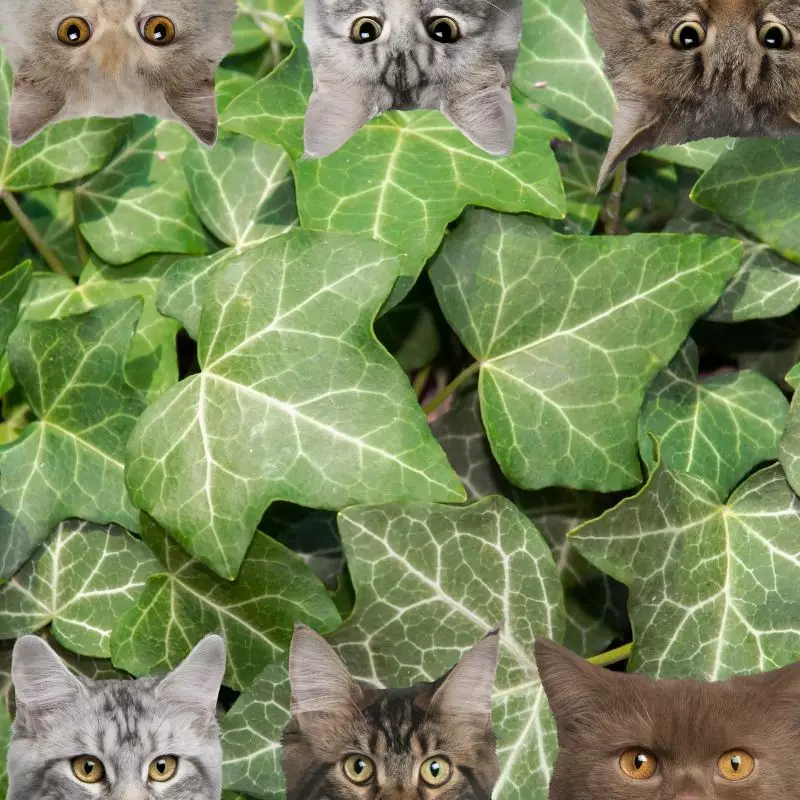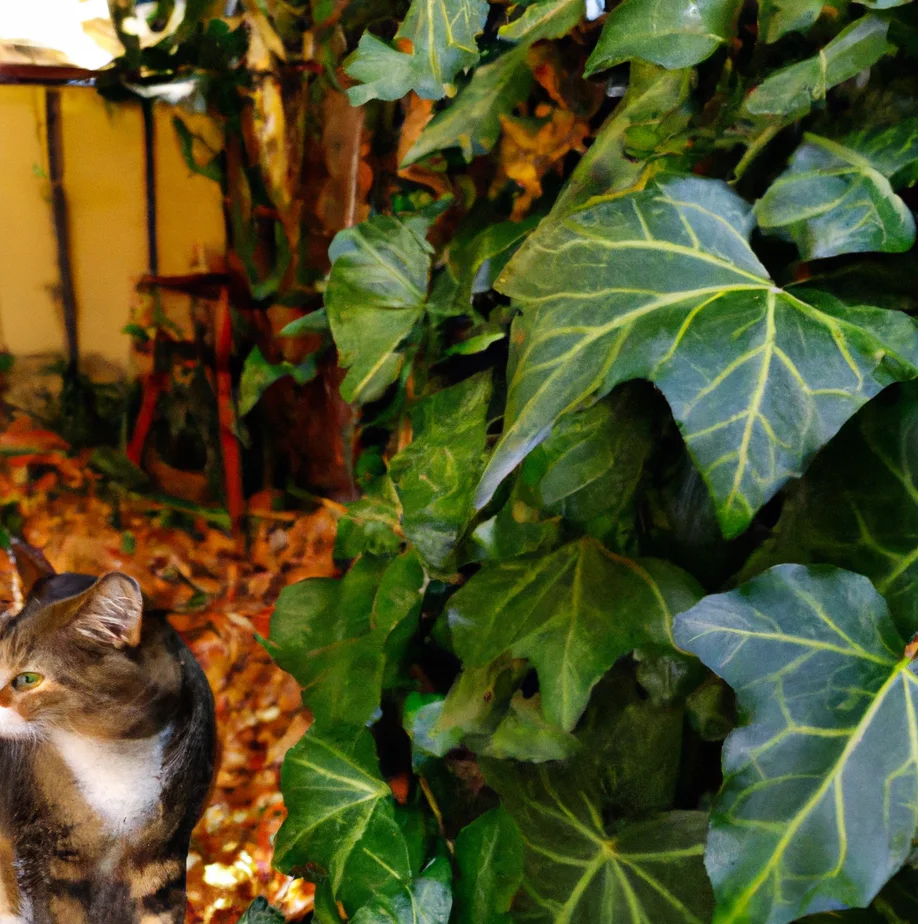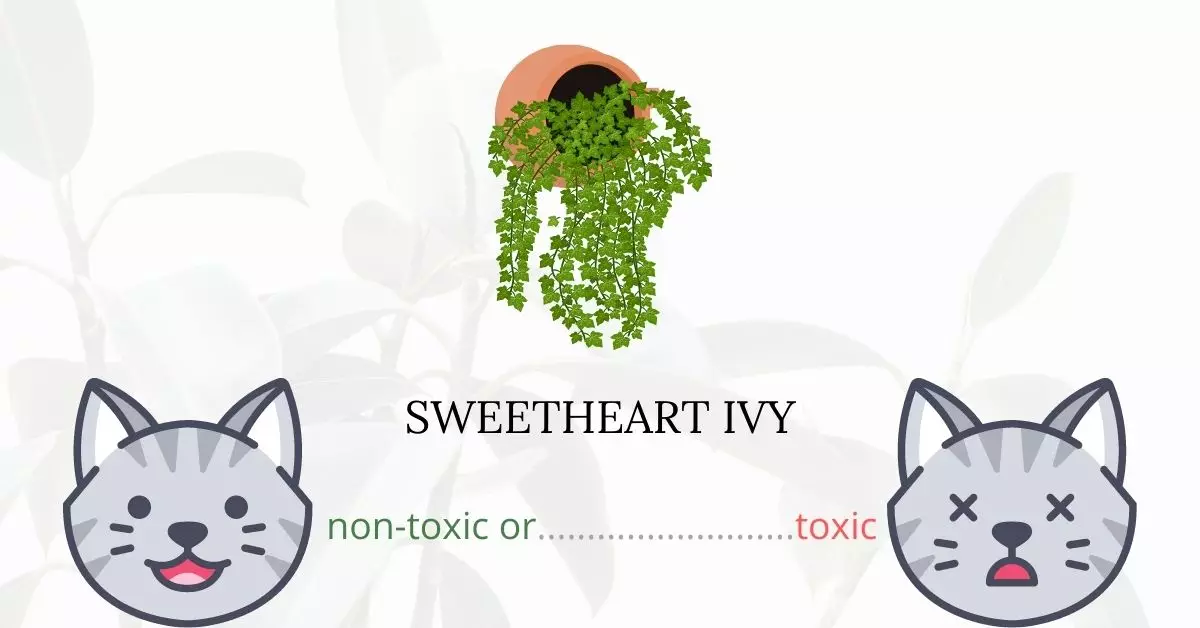Sweetheart Ivy indeed poses a risk to cats, and ingestion of any part of the plant—be it stem, leaves, petals, pollen, or seeds—can result in toxicity. Triterpenoid saponins, particularly the glycoside of pentacyclic oleananes found in sweetheart ivy, are identified as the toxic elements, known to induce potentially life-threatening poisoning in animals, including felines. When saponins interact with the skin, they are common inducers of dermatitis, and they are believed to be the culprits behind gastrointestinal distress when the plant is consumed.
In collaboration with a team of experienced Doctors of Veterinary Medicine (DVMs), we’ve meticulously researched and reviewed high-authority resources, such as ASPCA and PetMD, to ensure the delivery of precise and current information concerning the potential hazards of various plants, with a focus on Sweetheart Ivy in this instance, and their impacts on cats. Through the knowledgeable contributions of these veterinary experts, we can provide a comprehensive understanding of how sweetheart ivy affects cats, producing symptoms ranging from mild to severe. Even though there are no recorded incidents of cats fatally poisoned by sweetheart ivy, the consumption of this plant should never be taken lightly, and immediate action should be taken to prevent any severe health repercussions.
Clinical Signs of Sweetheart Ivy Poisoning in Cats

The onset of clinical signs after sweetheart ivy ingestion can be swift, manifesting shortly after exposure or consumption, or they can appear with a delay of up to two hours. The severity of symptoms intensifies based on the feline’s tolerance and the quantity ingested. The manifestations of sweetheart ivy poisoning are multifold, each a direct response to the irritation and toxicity caused by the plant’s triterpenoid saponins.
- Vomiting: This occurs as the body’s immediate response to expel the ingested toxic elements, induced by the irritation caused by the saponins.
- Abdominal Pain: Saponins can irritate the gastrointestinal lining, leading to discomfort and pain in the abdominal region.
- Hypersalivation: The body’s reflex reaction to irritation or poisoning is to produce excess saliva, signaling the presence of a harmful substance.
- Diarrhea: The irritation caused to the digestive tract triggers the body to expel the toxic elements swiftly, resulting in loose, frequent bowel movements.
- Dysphagia: The swelling and irritation of the throat’s tissues caused by saponins can lead to difficulty in swallowing, or dysphagia.
- Choking: Inflammation and swelling in the throat may cause obstructed airflow, inducing choking sensations.
- Drooling: A result of hypersalivation, excessive drooling is a reflex action to toxic ingestion and oral irritation.
- Dyspnea: The respiratory system may react to the toxin, causing difficulty in breathing or shortness of breath, known as dyspnea.
- Digestive upset: The toxic elements can disrupt the normal functioning of the gastrointestinal system, leading to overall digestive discomfort.
- Convulsions: The extreme response to toxins can cause involuntary muscle contractions or spasms as the body reacts to the poisoning.
- Coma: In severe cases, the accumulation of toxins and the body’s overwhelming response can lead to a loss of consciousness or coma.
Every symptom is a manifestation of the body’s defense mechanisms responding to the irritants and toxins found in the sweetheart ivy, and immediate veterinary intervention is critical to manage the symptoms and detoxify the cat’s system effectively. If your cat has been in contact, smelled, or consumed sweetheart ivy, it is crucial to seek professional help promptly to avoid complications and ensure the well-being of the feline.
First Aid and Treatment of Sweetheart Ivy Poisoning in Cats

The cat’s mouth will most likely be flushed with distilled water to begin treatment. To stimulate the feline to vomit, an emetic medication may be given. To inhibit additional toxin absorption, activated charcoal might be utilized. To avoid future stomach discomfort, medications like Kapectolin and sucralfate may be used.
If the cat has suffered from continuous vomiting and diarrhea, intravenous fluids may also be administered to restore the lost fluids in his or her body. This will also aid in clearing out toxins from the body as it will urge the cat to urinate.
Recovery from Sweetheart Ivy Poisoning in Cats

In most cases of sweetheart ivy poisoning, cats usually begin to improve after an hour of treatment and will recover completely within 24 hours. Similar to other cases of plant poisoning, the sooner the cat receives veterinary treatment, the better his or her chances of recovering completely.
Prevention of Sweetheart Ivy Poisoning in Cats
Avoid growing sweetheart ivy at home. As much as possible, let your cat stay indoors to minimize the chances of getting in contact with a sweetheart ivy that might be growing in your neighbor’s garden.
If you love plants but have cats at home, check out these lists:





